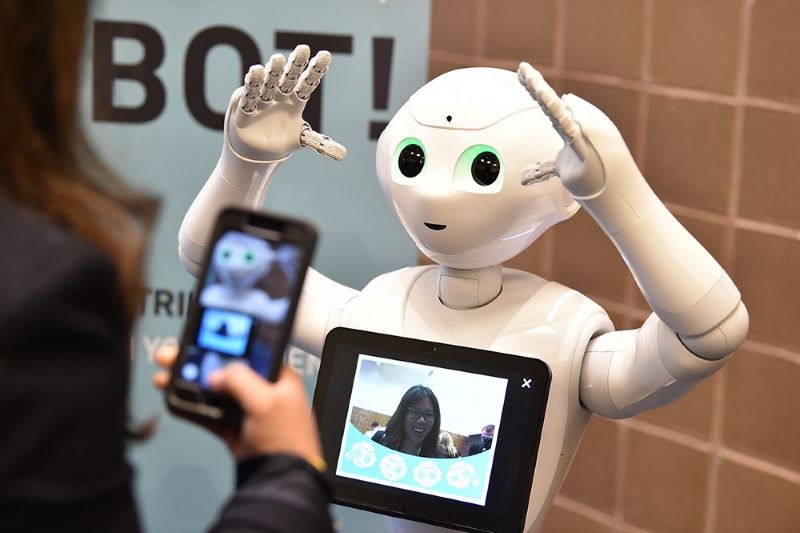In recent years, artificial intelligence (AI) has made remarkable strides across various industries. One of the most notable advancements is the rise of AI-powered phone robots, also known as AI virtual assistants or voice bots. These intelligent systems are reshaping the landscape of customer service by automating interactions that were once handled exclusively by human agents. From answering queries to resolving complaints and even completing transactions, AI phone robots are revolutionizing the way businesses interact with their customers. This report delves into the technology behind AI phone robots, their growing adoption, and the potential implications for both businesses and consumers.
What Are AI Phone Robots
AI phone robots are advanced software systems designed to mimic human conversations and assist customers over the phone. Unlike traditional automated phone systems, which relied on simple, pre-programmed menus, AI phone robots are powered by natural language processing (NLP) and machine learning algorithms. These technologies enable the bots to understand and interpret human speech, respond in a conversational manner, and learn from interactions to improve over time.
A key feature of AI phone robots is their ability to handle complex, open-ended questions. They can provide personalized responses based on customer data and context, which enhances the user experience and reduces the need for human intervention. Companies use AI phone robots to perform a variety of tasks, from providing general information to facilitating orders, processing payments, and even offering technical support.
The Benefits of AI Phone Robots
Cost Efficiency
One of the primary drivers of AI phone robot adoption is cost savings. Traditionally, businesses have relied on human call centers, which can be expensive to maintain. Staffing, training, and providing ongoing support to human agents incurs significant costs, especially during peak hours when demand surges. AI phone robots, on the other hand, can handle large volumes of calls simultaneously without additional costs. They operate 24/7, reducing the need for businesses to maintain extensive customer support teams.
Scalability and Availability
AI phone robots offer unparalleled scalability. Whether a company experiences a sudden increase in customer inquiries or operates in multiple time zones, AI bots can manage the surge without compromising the quality of service. This round-the-clock availability ensures that customers receive prompt responses, which enhances satisfaction and boosts brand loyalty.
For instance, e-commerce companies often experience a spike in customer inquiries during promotional events or the holiday season. Deploying AI phone robots ensures that every customer gets a timely response, reducing wait times and improving the overall shopping experience.
Improved Accuracy and Consistency
Human agents, despite their best efforts, are prone to errors, particularly when dealing with repetitive tasks or high call volumes. AI phone robots, however, follow precise algorithms, ensuring that responses are accurate and consistent. This level of reliability is particularly beneficial for industries like healthcare, finance, and legal services, where delivering the correct information is critical.
For example, in the banking sector, AI phone robots can be used to assist customers with balance inquiries, recent transactions, or loan applications. By automating these processes, banks ensure that customers receive accurate information quickly while minimizing the potential for human error.
Enhanced Customer Experience
AI phone robots have the ability to personalize interactions by accessing customer data in real-time. This allows them to offer relevant solutions based on the customer’s history, preferences, and current situation. For example, if a customer calls to inquire about an existing order, the AI bot can immediately access the order details and provide an update, without the customer needing to provide additional information.
Furthermore, AI phone robots can handle a diverse range of languages and dialects, making customer service accessible to a broader audience. This inclusivity is particularly valuable for global businesses that serve multilingual customer bases.
AI Phone Robots in Different Industries
E-commerce and Retail
In the e-commerce and retail sector, AI phone robots are transforming customer service by handling inquiries about product availability, order tracking, and return processes. Retailers are also using AI bots to suggest products based on customer preferences, driving sales and enhancing customer satisfaction. Additionally, AI phone robots are proving useful in streamlining payment processes and addressing common post-purchase queries.
Healthcare
AI phone robots are making significant inroads in the healthcare industry. Hospitals and clinics use these systems to automate appointment scheduling, answer frequently asked questions, and provide general medical information. AI phone robots can even perform initial patient assessments by asking symptom-related questions and guiding callers to appropriate healthcare services.
For instance, during the COVID-19 pandemic, many healthcare providers used AI phone robots to handle the influx of calls related to testing, vaccination, and general information. This automation freed up human healthcare professionals to focus on more critical tasks while ensuring that patients received accurate and timely information.
Financial Services
The financial sector has been an early adopter of AI phone robots, with banks and insurance companies using them to manage routine customer inquiries, such as balance checks, loan applications, and payment issues. These bots also play a role in fraud detection, where they can quickly verify transactions and notify customers of suspicious activity.
Moreover, AI phone robots help financial institutions comply with regulations by providing consistent and documented responses, which is crucial in an industry where regulatory adherence is paramount.
Telecommunications
In the telecommunications industry, AI phone robots are being used to handle customer inquiries related to billing, account management, and technical support. For example, if a customer experiences an issue with their internet connection, an AI bot can guide them through troubleshooting steps before escalating the issue to a human agent if necessary. This not only improves customer satisfaction but also reduces the burden on human support teams.
Challenges and Concerns
Despite the numerous advantages of AI phone robots, their adoption also raises certain challenges and concerns.
Data Privacy and Security
AI phone robots require access to large amounts of customer data to deliver personalized and accurate responses. This reliance on data raises privacy concerns, especially in industries like healthcare and finance, where sensitive information is handled. Ensuring that AI phone robots comply with data protection regulations, such as the General Data Protection Regulation (GDPR), is crucial for maintaining customer trust.
Lack of Human Touch
While AI phone robots are highly efficient, they may lack the empathy and emotional intelligence of human agents. For customers dealing with sensitive or complex issues, the inability of AI bots to provide emotional support can be a drawback. In these cases, it is essential to have a seamless escalation process where human agents can take over when necessary.
Technical Limitations
Although AI phone robots have made significant advancements in understanding and processing natural language, they are not perfect. Some customers may have accents or use slang that the bots struggle to comprehend. This can lead to frustration and the need for human intervention.
Job Displacement
The rise of AI phone robots has sparked concerns about job displacement in customer service. As companies increasingly rely on automation, the demand for human call center agents may decline. However, many experts argue that AI will create new roles focused on bot management, maintenance, and more complex customer interactions, rather than eliminating jobs entirely.
The Future of AI Phone Robots
The future of AI phone robots is bright, with ongoing advancements in AI technology promising even more sophisticated and intuitive systems. In the coming years, we can expect AI phone robots to become even more conversational and context-aware, capable of handling increasingly complex customer interactions.
Moreover, the integration of AI phone robots with other emerging technologies, such as AI-driven chatbots and virtual assistants, will create a seamless omnichannel customer experience. Businesses will be able to provide consistent service across various platforms, from phone calls to text-based chats and social media interactions.
As AI phone robots continue to evolve, they will undoubtedly play a central role in the future of customer service. While challenges remain, the benefits of enhanced efficiency, scalability, and customer experience make AI phone robots a valuable tool for businesses looking to stay competitive in an increasingly digital world.
AI phone robots are transforming the customer service landscape by providing cost-effective, scalable, and accurate solutions for businesses across various industries. From e-commerce to healthcare and finance, AI phone robots are improving the customer experience while helping businesses manage high volumes of inquiries efficiently. However, their rise also brings challenges, particularly concerning data privacy, human touch, and potential job displacement. As technology advances, the future of AI phone robots will see even greater capabilities, reshaping the way companies interact with their customers and creating new opportunities for both innovation and growth.













Leave a comment